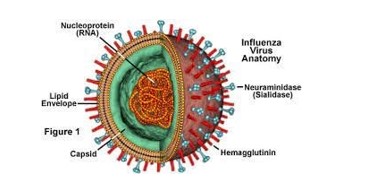A nurse In a community health clinic is administering seasonal inactive influenza vaccine. Before
administering it, the nurse must confirm that the client is not allergic to which of the following:
Eggs
Yeast
Gelatin
Shellfish
The Correct Answer is A
Influenza vaccine production involves growing the virus in eggs. Therefore, the vaccine may contain trace amounts of egg proteins. Some individuals may be allergic to egg proteins and may experience an allergic reaction after receiving the vaccine. For this reason, healthcare providers should always ask their patients about egg allergies before administering the influenza vaccine.
Yeast, gelatin, and shellfish are not typically present in the seasonal inactive influenza vaccine, so allergy to these substances is not a concern when administering the vaccine. However, if a person has a known allergy to any of the ingredients in the vaccine, they should inform their healthcare provider before receiving it.

Nursing Test Bank
Naxlex Comprehensive Predictor Exams
Related Questions
Correct Answer is C
Explanation
The correct answer is choicec. Administer the medication under the client’s tongue.
Choice A rationale:
Administering the crushed medication through the NG tube is inappropriate because sublingual medications are designed to be absorbed through the tissues under the tongue, not the gastrointestinal tract. Crushing and administering it through the NG tube would alter its intended absorption and effectiveness.
Choice B rationale:
Dissolving the medication in water and giving it through the NG tube is also incorrect for the same reasons as Choice A. Sublingual medications are specifically formulated to be absorbed through the mucous membranes under the tongue, and changing the route of administration can affect the drug’s efficacy.
Choice C rationale:
Administering the medication under the client’s tongue is the correct action. Sublingual medications are designed to be absorbed directly into the bloodstream through the tissues under the tongue, bypassing the digestive system and providing rapid onset of action.
Choice D rationale:
While some medications can be safely switched to oral formulations for NG tube administration, such a change is only necessary when the prescribed route (in this case, sublingual) cannot be used. Without contraindications (e.g., inability to hold the medication under the tongue or mucosal issues), the original sublingual route should be followed.
Correct Answer is B
Explanation
Rifampin and pyrazinamide can cause liver toxicity, so liver function tests should be monitored regularly while on this medication regimen to ensure that the liver is functioning properly and to detect any potential liver damage early.

Whether you are a student looking to ace your exams or a practicing nurse seeking to enhance your expertise , our nursing education contents will empower you with the confidence and competence to make a difference in the lives of patients and become a respected leader in the healthcare field.
Visit Naxlex, invest in your future and unlock endless possibilities with our unparalleled nursing education contents today
Report Wrong Answer on the Current Question
Do you disagree with the answer? If yes, what is your expected answer? Explain.
Kindly be descriptive with the issue you are facing.
